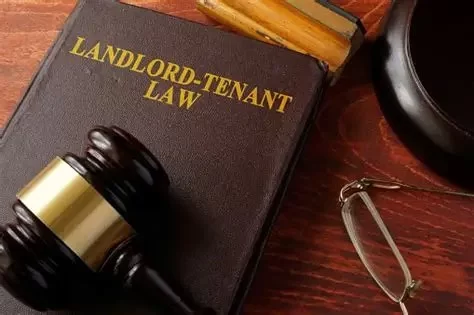How to Evict a Tenant Without Violating the Law
- 1 - Understanding Tenant Rights
- 2 - Steps to Legally Evict a Tenant
- 3 - Common Reasons for Eviction
- 4 - Important Legal Considerations
- 5 - Case Study: Evicting Without Violating the Law
- 6 - The Role of a Lawyer in Eviction
- 7 - Get Help from Fred Miller Lawyer
1. Understanding Tenant Rights
Evicting a tenant is a process that must be carried out according to the law. Landlords cannot simply evict a tenant without following the proper legal procedures. Tenants have rights that are protected by local, state, and federal laws. Understanding these rights is crucial for landlords to avoid legal consequences. For example, tenants have the right to a written notice and a chance to remedy the issue in many situations, such as non-payment of rent or violations of lease terms.
2. Steps to Legally Evict a Tenant
Eviction is a legal process that typically requires several steps. If you’re a landlord trying to evict a tenant, it's essential to follow the proper procedures to avoid violating the law. Here are the general steps involved in a legal eviction:
2.1 Provide Written Notice
The first step in the eviction process is to provide the tenant with a written notice. The type of notice depends on the reason for eviction. Common notices include a "Pay or Quit" notice (for non-payment of rent) or a "Cure or Quit" notice (for lease violations). The notice must clearly explain the reason for eviction and the tenant's right to remedy the issue within a specified time period. Failure to provide a proper notice could result in a delay or invalidation of the eviction process.
2.2 File an Eviction Lawsuit
If the tenant does not comply with the notice, the next step is to file an eviction lawsuit, known as an "unlawful detainer" lawsuit, at the local court. This legal document outlines the reason for eviction and the tenant’s failure to resolve the issue. Once filed, the tenant will receive a summons to appear in court. It’s important to follow all local laws regarding filing, as this can vary by state and county.
2.3 Court Hearing and Judgment
A court hearing is scheduled where both the landlord and tenant can present their cases. The landlord must provide evidence to support the claim for eviction, while the tenant may present any defenses or counterclaims. If the court rules in favor of the landlord, a judgment for eviction is issued. The tenant will then be ordered to leave the property within a specific timeframe.
2.4 Eviction by Law Enforcement
If the tenant still refuses to vacate the property, law enforcement may be involved to enforce the eviction order. The local sheriff or law enforcement officer will serve the tenant with a notice to vacate, and if the tenant does not leave, they may physically remove the tenant and their belongings from the premises. It's important to note that landlords cannot take matters into their own hands by changing locks or removing belongings without a court order.
3. Common Reasons for Eviction
Eviction is typically due to certain breaches of the lease agreement by the tenant. Some of the most common reasons for eviction include:
3.1 Non-Payment of Rent
One of the most common reasons for eviction is non-payment of rent. When tenants fail to pay rent on time or fail to pay at all, landlords may begin the eviction process after providing the required notice.
3.2 Lease Violations
Tenants may also be evicted for violating terms of the lease, such as having unauthorized pets, subletting without permission, or engaging in illegal activities on the property. Lease violations usually warrant a “Cure or Quit” notice, where the tenant is given an opportunity to fix the violation or leave the premises.
3.3 Property Damage
Damage to the property that goes beyond normal wear and tear may lead to eviction. If tenants cause significant damage to the property, landlords may choose to evict them after proper notice is provided.
3.4 Health and Safety Violations
Tenants who create dangerous or unsanitary living conditions can also be evicted. This includes failure to maintain the property, causing health hazards, or violating building codes. Landlords must document these violations and provide proper notice before proceeding with eviction.
4. Important Legal Considerations
Eviction laws can vary by state and city, so it’s crucial to consult with a legal professional before starting the process. Some key legal considerations include:
4.1 Fair Housing Laws
Under federal Fair Housing laws, landlords cannot evict a tenant based on race, color, national origin, religion, sex, familial status, or disability. Evictions must always be carried out fairly and without discrimination, and landlords should be aware of these protections to avoid legal repercussions.
4.2 Rent Control Laws
Some cities and counties have rent control laws that limit how much rent can be charged and when evictions can take place. Make sure to check if your property is subject to these laws before moving forward with eviction. Violating rent control laws can result in fines or legal action.
4.3 Local Eviction Laws
Eviction laws can vary significantly depending on where the property is located. Some areas may have additional tenant protections, like extended notice periods or restrictions on eviction during certain times of year. It’s essential to understand the specific eviction laws in your area to avoid making costly mistakes.
5. Case Study: Evicting Without Violating the Law
John, a landlord in California, faced a difficult eviction situation when his tenant stopped paying rent for several months. John had initially given the tenant an opportunity to make payments, but after multiple missed deadlines, he began the formal eviction process. By following the proper steps—serving the required notices, filing a lawsuit, and going to court—John successfully evicted the tenant without violating the law. His story serves as a reminder that while eviction can be a stressful process, it is manageable when done correctly and legally.
6. The Role of a Lawyer in Eviction
A lawyer can be an invaluable resource during the eviction process. They help landlords navigate complex laws, ensure that all paperwork is properly filed, and represent the landlord in court if necessary. Working with a lawyer can prevent costly mistakes and ensure that the eviction is carried out legally. A lawyer’s guidance also helps landlords avoid potential lawsuits from tenants who might claim that the eviction process was mishandled.
7. Get Help from Fred Miller Lawyer
If you are facing an eviction issue, it’s important to seek legal help from an experienced lawyer. Fred Miller Lawyer specializes in tenant and landlord law and can guide you through the eviction process to ensure that everything is handled correctly and legally. Contact Fred Miller Lawyer today to schedule a consultation and get the professional legal support you need.


 9130 south dadeland boulevard
9130 south dadeland boulevard dorany rodriguez attorney
dorany rodriguez attorney 555 11th st nw washington dc
555 11th st nw washington dc georgia lawyers for the arts
georgia lawyers for the arts porter law firm
porter law firm cohen feeley
cohen feeley